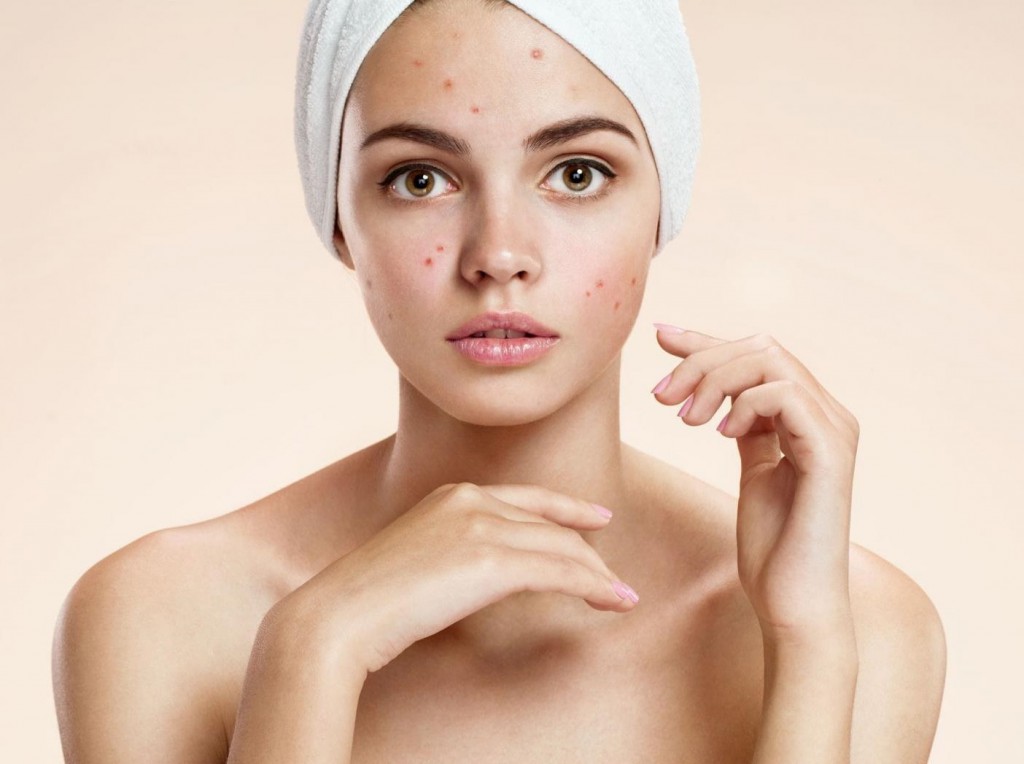What to use and how to take care of skin affected with acne?
It can be an unpleasant shock: so far, nice, young-looking skin which suddenly … begins to rebel. You start noticing pimples and blackheads on the face, as well as excess sebum through which the skin shines unattractively. Excess sebum also causes a number of inflammatory conditions on the skin, which further aggravates acne and adverse, unsightly skin changes. How to fight such skin problems? What cosmetics should appear in a teenage beauty bad?
 When reaching for cosmetics for acne-prone skin, you should realize that their use is not only determined by hygienic purpose but also … a healing one. A good anti-acne cosmetic works like a medicine, more specifically, as an anti-acne treatment. Therefore, their selection should be well-thought-out and appropriate. It is worth remembering that cosmetics are often not enough to get rid of acne (especially with its aggressive, intense form). Their composition and type are of great importance.
When reaching for cosmetics for acne-prone skin, you should realize that their use is not only determined by hygienic purpose but also … a healing one. A good anti-acne cosmetic works like a medicine, more specifically, as an anti-acne treatment. Therefore, their selection should be well-thought-out and appropriate. It is worth remembering that cosmetics are often not enough to get rid of acne (especially with its aggressive, intense form). Their composition and type are of great importance.
Anti-acne cosmetics – types
When taking care of acne skin, a face cream may not be enough. The key to success is cleansing the face with special cosmetics – only well-prepared skin absorbs enough of the ingredients contained in the face cream. In order to achieve victory in the fight against acne, you need to use a few specialized products that will complement their properties and create an excellent cure for blemishes. They include:
- cleansing cosmetics (gels, foams/mousses) – they remove all impurities and excess sebum from the face, calm the skin and restore its bacterial balance, normalize seborrhea and acidify the skin by balancing its pH. Face wash gels, gels for young skin (often have antibacterial and antiseptic effects) and various types of micellar water with antibacterial agents that are based on herbal ingredients or – recently popular – activated charcoal that perfectly collects all impurities from the face.
- exfoliating facial scrubs – with acne skin it is better not to reach for a traditional scrub, which consists in mechanical exfoliation of the epidermis (such a procedure can only spread the bacteria on the face and exacerbate acne). Nevertheless, skin cleansing is extremely important, so do not give up on peels, but choose the one that does not require friction (gommage or enzyme peel will be better). With oily and acne skin, you can use them 2-3 times a week.
- bacteriostatic cosmetics – are specialized products that are very helpful when dealing with a stronger form of acne, or with its papule-pustular variant. They are to be used in the morning and in the evening – products of this type inhibit the multiplication of bacteria and thus, over time, they heal acne changes on the face. Also, bacteriostatic cosmetics also exfoliate dead skin cells, therefore, for the duration of their use, it is better to limit the use of other facial peels, or consult with a dermatologist.
- normalizing toners – toner has recently become a very under-appreciated cosmetic, meanwhile, nothing calms the skin and does not restore its proper pH better than a toner. The one dedicated to acne-prone skin also regulates the secretion of sebum.
- specialized creams for the night – although young skin does not require the use of other cosmetics for the day and for the night – one face cream is enough. However, it is different, when you are struggling with strong acne and very annoying seborrhea. Then, it is worth using a specially selected night cream that has a different effect than “daytime”: it exfoliates the skin, heals and reduces acne, regulates sebum, unifies its tone and unclogs, cleanses and narrows pores.
- anti-bacterial and mattifying masks – face masks give relief and improve the appearance of the skin. Their action is superficial, but they certainly give comfort and mattify the complexion for many hours, improving its condition and alleviating acne. Ideally, if they are composed of natural ingredients – if you are looking for a good anti-bacterial mask that’s also cleansing and regulating sebum – try a natural, green clay – you can mix it with herbal hydrolate, water or natural toners to create a special paste that is to be applied to your face. After the mask becomes dry, wash it down with lukewarm water.
- natural oils – it turns out that oil perfectly regulates sebum secretion and reduces seborrhea. How is that possible? Mainly because most oils contain squalene, an ingredient in human sebum that balances the work of sebaceous glands. At the same time, oils provide the skin with a full set of vitamins and minerals, act antiseptically and help cure acne lesions. It’s best to apply the oils overnight. If you want to try them on your skin, reach for the jojoba or coconut oil – they contain the highest amount of squalene.
- antibacterial concealers and spot healing preparations – they are very useful in everyday makeup or with extremely stubborn blemishes because they accelerate the regeneration process and help fight local skin changes. Concealers perfectly mask the imperfections and make the entire makeup application a lot easier.
